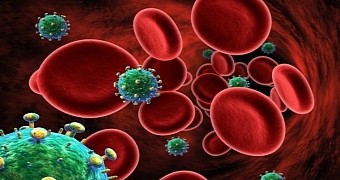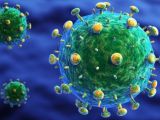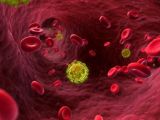The human immunodeficiency virus, better known as HIV, is now less virulent than it used to be, and consequently, it takes longer to progress to acquired immune deficiency syndrome, i.e. AIDS, argues a recent paper in the journal Proceedings of the National Academy of Sciences.
In other words, folks who come to be infected with HIV are likely to take longer to develop AIDS. This find brings new hope to the 35 million people currently carrying HIV in their bodies, specialists with the University of Oxford and fellow researchers explain.
You win some, you lose some
Writing in the journal Proceedings of the National Academy of Sciences, specialists argue that the reason HIV is now less virulent and needs more time to cause AIDS is that it has put a lot of effort into resisting the human body's natural immunity.
As shown by previous investigations, some people carry a specific gene that can help fight HIV. This gene expresses a protein dubbed HLA-B*57, that serves to protect against the virus. Hence, folks whose bodies produce this protein progress to AIDS slower than usual.
The thing is that HIV is not one to give up without a fight. Thus, data at hand indicates that, at least in Botswana, it has evolved and transformed in such ways that the HLA-B*57 no longer has any effect on it, EurekAlert informs.
What's interesting is that, by the looks of it, its efforts to adapt to HLA-B*57 had a negative impact on HIV's ability to replicate. What this means is that, although no longer hindered by the protein, the virus is less virulent than it used to be.
Scientists with the University of Oxford and colleagues argue that, if other protective gene variants similar to HLA-B*57 affect HIV in the same manner, i.e. they force it to become less virulent, this might help eradicate the ongoing epidemic.
“This research highlights the fact that HIV adaptation to the most effective immune responses we can make against it comes at a significant cost to its ability to replicate,” says Professor Phillip Goulder.
Antiretroviral therapy also had a say in the matter
According to Professor Phillip Goulder and fellow researchers, it's not just the body's own defense mechanisms that can toy with HIV up to the point where the virus starts losing its ability to replicate and becomes less virulent.
On the contrary, evidence at hand indicates that antiretroviral therapy can too make the virus less virulent when administered to people with low immune cells counts. The idea is to trick the virus into evolving to be able to deal with potential threats and losing its ability to replicate in the process.
“The widespread use of ART is an important step towards the control of HIV. This research is a good example of how further research into HIV and drug resistance can help scientists to eliminate HIV,” says Dr. Mike Turner with the Wellcome Trust.

 14 DAY TRIAL //
14 DAY TRIAL // 



